I) Intro – A Conflict of Visions
“A Conflict of Visions” is a book by Dr Thomas Sowell. In it, he distills the various political philosophies and worldviews into one of two “visions…”
The Constrained Vision…
“…sees the evils of the world as deriving from the limited and unhappy choices available, given the inherent moral and intellectual limitations of human beings.”
“For the amelioration (improvement) of these evils and the promotion of progress, they rely on the systemic characteristics of certain social processes such as moral traditions, the marketplace, or families.”1
The Unconstrained Vision…
When Rousseau said that ‘man is born free’ but ‘is everywhere in chains,’ he expressed the essence of the unconstrained vision, in which the fundamental problem is not nature or man but institutions.”2

Sowell is an Economist. He is not a theologian nor does he attempt to position one “vision” over the other in his book. Rather, it’s a dispassionate overview of the two visions and how they capture much of the angst and tension that exists in today’s cultural and political arenas because of the way The Constrained Vision sees life as something that is hard by nature and requires individual resolve and moral courage to succeed…
…and not government.
The Unconstrained Vision, however, sees life as a place where good things happen automatically and the only barrier to individual and corporate utopia are institutions.
By implementing different laws or instituting different systemic paradigms, suddenly life becomes better.
This is what we’re looking at as a society: Two approaches that are defined exclusively by what it is that makes the difference in terms of prosperity and fulfillment both from an individual and a national perspective.
The Constrained Version says that you look to morality, industry and healthy family structures.
The Unconstrained Version says that you depend on institutions and legislative systems for your happiness and satisfaction.
While the practical advantages of the Constrained Version can be validated using objective economic realities, there’s more to this discussion than what can be calculated on an Excel spreadsheet.
While Sowell makes no mention of the spiritual realities inherent in both Versions, because The Constrained Version incorporates morality into its perspective, the definition of what is moral has to be addressed and that will be determined by one’s view on Moral Absolutes.
And it’s because the Unconstrained Version doesn’t acknowledge one’s morality as a contributing factor to your economic success, either Moral Absolutes don’t matter or they don’t exist. Either way, there’s a perspective that goes beyond dollar signs and spills over into personal convictions pertaining to Who it is that makes the rules.
It’s here that one’s definition of God becomes the defining issue and this is why we need to be talking about, not just Economics, but the Politics and the Theology those Politics are based on that allow those economies to exist in the first place.
In this series, we’ve looked at how God is intimately engaged in Politics and He expects us to be aware and involved (Dan 2:21; 1 Chron 12:32; 1 Tim 2:2). We also discussed how the best candidate for office is the one who’s platform is most consistent with the foundation laid by our Founding Fathers who conceived a form of government based on Biblical Absolutes.
In Part II, we looked at the importance of being wise in the way you process what you hear and what you see in the media. In Part III we looked at two of the five tactics that are often used by people who have something to hide more than they have something to say.
Today we conclude our series by looking at the last three of the five tactics referenced in Part III and looking at the importance of evaluating a tree according to its fruit more so than its appearance.
Here we go!
II) The Progressive Pentagon (Part II)
They spend more time pretending to be hurt than they do proving that they’re right.
But Moses said to God, “Who am I that I should go to Pharaoh and bring the Israelites out of Egypt…10 Moses said to the Lord, “Pardon your servant, Lord. I have never been eloquent, neither in the past nor since you have spoken to your servant. I am slow of speech and tongue.”
11 The Lord said to him, “Who gave human beings their mouths? Who makes them deaf or mute? Who gives them sight or makes them blind? Is it not I, the Lord? 12 Now go; I will help you speak and will teach you what to say.”
13 But Moses said, “Pardon your servant, Lord. Please send someone else.”
14 Then the Lord’s anger burned against Moses… (Ex 3:11; 4:10-14 [see also Matt 7:21-22])
When you’re on the bench, you can’t be expected to be putting points on the board because you’re not on the field. It’s a reasonable sounding excuse for the person who’s looking to avoid having to function and perform.
However you may be inclined to say: “I’m not, I don’t, I can’t and I won’t” remember, you are, you do, you can and you will…because He does, He can, He will and He is.
An unwilling mind will take up with a sorry excuse rather than none. (Matthew Henry Commentary on Exodus 4)3
They spend more time trying to sound honest rather than actually telling the truth.
4 “You will not certainly die,” the serpent said to the woman. 5 “For God knows that when you eat from it your eyes will be opened, and you will be like God, knowing good and evil.” (Gen 3:4-5)
All a person’s ways seem pure to them, but motives are weighed by the Lord. Commit to the Lord whatever you do, and he will establish your plans. (Prov 16:2-3)
The judgment of God concerning us, we are sure, is according to truth: He weighs the spirits in a just and unerring balance, knows what is in us, and passes a judgment upon us accordingly, writing Tekel (TEE-cale [to weigh]) upon that which passed our scale with approbation—weighed in the balance and found wanting; and by his judgment we must stand or fall. He not only sees men’s ways but tries their spirits, and we are as our spirits are… (Matthew Henry Commentary on Proverbs 16:2-3)
| 21 “Not everyone who says to me, ‘Lord, Lord,’ will enter the kingdom of heaven, but only the one who does the will of my Father who is in heaven. 22 Many will say to me on that day, ‘Lord, Lord, did we not prophesy in your name and in your name drive out demons and in your name perform many miracles?’ 23 Then I will tell them plainly, ‘I never knew you. Away from me, you evildoers!’ (Matt 7:21-22) |
You can’t drown out the crash of a bad decision with the sound of a good intention. |
| I’m not that bad… |
| The man said, “The woman you put here with me—she gave me some fruit from the tree, and I ate it.” (Gen 3:12) |
“He that is good for making excuses is seldom good for anything else.” Benjamin Franklin |
| It’s not my fault… |
Don’t excuse yourself by saying, “Look, we didn’t know.” For God understands all hearts, and he sees you. He who guards your soul knows you knew. He will repay all people as their actions deserve. (Prov 24:12 [NLT])
Proverbs 28:13 “Whoever conceals his transgressions will not prosper, but he who confesses and forsakes them will obtain mercy.”
Recap…
An easy way to remember the five tactics that we’ve looked at is by using the acrostic, “Mickey Hood.”
| Mickey Hood |
| M |
Mobs |
They spend more time talking about Labels, Mobs and Crowds than they do a Name, a Person and a Choice. |
| C |
Characters |
They spend more time assaulting their opponent’s character than they do discussing their opponent’s content. |
| H |
Hurt |
They spend more time pretending to be hurt than they do proving that they’re right. |
| H |
Honest |
They spend more time trying to sound honest rather than actually telling the truth. |
| D |
Decisions |
They spend more time defending bad decisions than they do applauding good choices. |
All of this can be boiled down to one central Truth and that’s the fact that you can know a tree by its fruit…
Make a tree good and its fruit will be good, or make a tree bad and its fruit will be bad, for a tree is recognized by its fruit. (Matt 12:33)
However a person looks on paper or in person, however they speak – while all of that is something to be considered, Christ makes it clear that in the end, it’s a person’s actions that reveal their true colors (see Matt 15:18-19).
III) Real World Examples
Attempting to distract from a person’s actions by using one of the aforementioned tactics so as to better justify what amounts to a bogus mindset is a practice frequently used and is hard to miss once you know what to look for.
A) Illegal Immigration
 Prager University recently published a video that details our nation’s immigration policies and describes them as generous and fair (see QR code to the right).
Prager University recently published a video that details our nation’s immigration policies and describes them as generous and fair (see QR code to the right).
There are those, however, who insist that America is a racist enterprise and any kind of legislation that seeks to limit the ability of a particular people group into the country is unjust and a manifestation of its resolve to promote white supremacy.
One argument that’s presented as a way to prove the theory that America is a racist nation and has a history of preventing specific ethnicities from entering the country is the Page Act of 1875.
1) Page Act of 1875
Beginning in 1845, Chinese looking to escape the sufferings of the Taiping Rebellion were easily convinced to sign contracts offered by recruiters featuring the promise of a better life in the US in exchange for an extended period of time as an indentured servant. For all intents and purposes, these “contracts” weren’t designed for the sake of providing opportunities to Chinese foreigners as much as it was an attempt to circumvent the abolition of slavery and secure cheap labor provided by a nationality that was easy to exploit.
This was the “Coolie Trade.”
Many of the Chinese that signed these contracts had no idea what they were actually signing up for. Some were actually forced to sign and the conditions that they had to contend with included being congregated at Hong Cong in Barracoons before they were loaded into ships and then transported to any one of a number of foreign destinations that included America, Britain, France Spain and Portugal. While some died of disease or suicide in the Barracoons, the average mortality rate was 12% during the journey overseas which was the same mortality rate as the African Slave Trade.
And while Chinese men were obviously preferred for the sake of physical labor, Chinese women were also being enslaved…
…as prostitutes.
In 1860, upwards of 85% of Chinese women in San Francisco were prostitutes. An 1870 census reported that 61% of the 3536 Chinese women in California were employed as sexual appliances. Some of these girls had been kidnapped, many of them had been sold into slavery by their families.
It was a terrible life in many ways…
Conditions in the California brothels, concentrated primarily in San Francisco and Los Angeles, were terrible. Often mistreated by customers, the indentured girls received little care and no medical attention. Homesick and left untreated for venereal disease or other illnesses, most women were broken within a few years and rarely lasted more than five or six years in bondage. Some who started when they were 14 years old were dead before they reached 20, according to Chinese academics Yung and Lucie Cheng and the reportage of Gary Kamiya based on stories in the “San Francisco Chronicle” archives.4
In 1862, the Republican party submitted a piece of legislation designed to put an end to the way in which the Chinese people were being abused and exploited. It proved almost impossible to enforce, however, because there was no way to systemically identify a “coolie” from a legitimate Chinese immigrant – an unfortunate circumstance that was enthusiastically embraced by those who profited from the, “Coolie Trade.”
The point of the legislation was not to restrict Chinese people, but to protect them from being exploited.
It was called the “Page Act” because of it’s sponsor, Horace Page. When you look him up on Wikipedia, you find this:
Horace Francis Page (October 20, 1833 – August 23, 1890) was an American lawyer and politician who represented California in the United States House of Representatives for five terms between 1873 and 1883. He is perhaps best known for the Page Act of 1875 which began the racial prohibitions against Asian, primarily Chinese, immigration. Page was among a faction of congressmen who openly used racist ideas to defend their positions. Page introduced the Chinese Exclusion Act to the House. When arguing for a ban on the immigration of Chinese laborers, he sought to win support from those who believed in white racial superiority, telling his fellow members that “there is not a member upon this floor… who believes that the coming of the African race… was a blessing to us or to the African himself.5
The comment “…there is not a member upon this floor…who believes that the coming of the African race…was a blessing to us or to the African himself” makes it apparent that this man is a racist.
But note the ellipsis (…). Anytime you see those three dots, you may want to roll up your sleeves and do some digging because there’s at least a chance that some crucial context is being omitted.
Here’s the actual comment he made as recorded in the Congressional Record dated March 15, 1882:
I believe, Mr Speaker, that there is not a member upon this floor, of either party, who believes that the coming of the African race to this country originally was a blessing to us or to the African himself. Their condition has long been a subject of careful and earnest consideration among thoughtful people.
The time was, Mr Speaker, when the United States Government undertook to suppress African slavery, or when it entered into an agreement in a treaty with other governments that they would suppress African slavery. It also provided by law that when any vessel having slaves on board was captured upon the high seas by any of our cruisers those Africans found on board and held as slaves, if brought to the United States, should only remain her six months and then be returned back to their native country.6
The point Page was making is that Africans were not brought here voluntarily. As slaves they were subjected to all kinds of inhumane treatment and the result was a horrific existence for the slave and ultimately a war that would wipe out over a quarter of a million people.
While he doesn’t reference the Civil War in his comments, Page was a Major in the California Militia– a unit that was active during the conflict.7
In addition, later on in his comments, he speaks specifically to the Chinese people in general. He says:
The other sections of the bill provide that any native of China who comes here for the purpose of trade or travel or of engaging in legitimate commerce may do so unrestricted and shall be entitled to all the rights and privileges accorded to citizens of the most favored nation.8
When you take the context of his comments into consideration as well as his military record, you find yourself viewing Page not so much as a Racist, but as someone who was concerned about a specific situation more so than a general people group.
If Page was alive today, I can’t help but think he wouldn’t be extremely offended to be labeled, not only a Racist in the context of African Americans, but also in the way he was maligned for supposedly targeting Chinese people in general as opposed to those who were here either against their will or brought here under false pretenses. It’s not that he was looking to limit their opportunities as much as he was trying to destroy the trade of their oppressors.
But did you see how Mickey Hood was used to make Page and his legislation appear malicious?
B) Christopher Columbus
For centuries, Christopher Columbus has been respected as a brave and virtuous explorer credited for having discovered the New World.
Recently, however, historians such as Howard Zinn have depicted Columbus as a greedy racist intent on enslaving the natives he encountered and ushered in a wave of disease and abuse that qualifies him as a true villain.
He quotes from Columbus’ journals with things like this:
(describing the natives) They do not bear arms, and do not know them, for I showed them a sword, they took it by the edge and cut themselves out of ignorance. They have no iron. Their spears are made of cane…The would make fine servants…With fifty men we could subjugate them all and make them do whatever we want.9
Again, you see the ellipsis and the “mystery” suggested by those three dots does not disappoint, as far as the way it hides the context that Zinn obviously wants to conceal.
 Columbus’ actual log entry was this (the highlighted section is what Zinn omits):
Columbus’ actual log entry was this (the highlighted section is what Zinn omits):
Thursday, October 11: They neither carry nor know anything of arms, for I showed them swords, and they took them by the blade and cut themselves through ignorance. They have no iron, their darts being wands without iron, some of them having a fish’s tooth at the end, and others being pointed in various ways. They are all of fair stature and size, with good faces, and well made. I saw some with marks of wounds on their bodies, and I made signs to ask what it was, and they gave me to understand that people for other adjacent islands came with the intention of seizing them, and that they defended themselves. I believed, and still believe, that they come here from the mainland to take them prisoners. They should be good servants and intelligent, for I observed that they quickly too in what was said to them, and I believe that they would easily be made Christians, as it appeared to me that they had no religion.10
Columbus wasn’t saying they would make good servants because he had in mind to expand the slave trade to include the natives he had just discovered. Rather, he was observing why this particular people would be potentially victimized by neighboring tribes because they were so submissive.
In his translation of Columbus’s log, Robert Fuson discusses the context that Zinn deliberately left out: “The cultural unity of the Taino [the name for this particular tribe, which Zinn labels “Arawaks”] greatly impressed Columbus…Those who see Columbus as the founder of slavery in the New World are grossly in error. This thought occurred to [Samuel Eliot] Morison (and many others) who misinterpreted a statement made by Columbus on the first day in America, when he said, ‘They (the Indians) ought to be good servants.’ In fact, Columbus offered this observation in explanation of an earlier comment he had made, theorizing that people from the mainland came to the islands to capture these Indians as slaves because there were so docile and obliging.”11
Notice Columbus’ statement: “They should be good servants” and how that one phrase is quoted by Zinn, but then nothing after that is cited until the next section of Columbus’ log which is…
…three days later!
It’s here where he mentions how the natives could easily be subjugated.
Sunday, October 14: I went to view all this this morning, in order to give an account to your Majesties and to decide where a fort could be built. I saw a piece of land which is much like an island, though it is not one, on which there were six huts. It could be made into an island in two days, though I see no necessity to do so since these people are very unskilled in arms, as your Majesties will discover from seven whom I caused to be taken and brought aboard so that they may learn our language and return. However, should your Highnesses command it all the inhabitants could be taken away to Castile or held as slaves on the island, for with fifty men we could subjugate them all and make them do whatever we wish.12
It’s hard not to suspect Columbus of something sinister when you hear him assure his sovereigns that they could enslave all of the natives on the island with no problem because, after all, they don’t know anything about modern weaponry and, “…with fifty men we could subjugate them all and make them do whatever we wish.”
If Columbus’ actions had mirrored his comments, there would be good reason to believe that he was scheming to enslave and exploit the Arawaks. But Columbus’ first priority was to be an effective witness:
…welcomed as a “deliverer”
According to Professor Felipe Fernadndez-Armesto – a specialist in Latin American History and the author of Columbus, Columbus was actually, “welcomed as a deliverer” by the Arawaks because they were “already doomed by the fierce imperialism of the neighboring Caribs.16
“I,” he says, ” that we might form great friendship, for I knew that they were a people who could be more easily freed and converted to our holy faith by love than by force, gave to some of them red caps, and glass beads to put round their necks, and many other things of little value, which gave them great pleasure, and made them so much our friends that it was a marvel to see.13
Columbus wanted to convert them to the Christian faith. To do that, in his mind, required genuine friendship and compassion and you can see this if you read his journal entries in their appropriate context.
Beyond that, however, you have the reality of a world that is not acknowledged at all by Zinn.
First off, while the natives that Columbus interacted with directly were docile enough, there were other tribes that he could confidently categorize as possible threats given the way in which they had demonstrated their willingness to attack the locals he had met.
The natives make war on each other, although these are very simple-minded and handsomely-formed people14
The Actions of Christopher Columbus…
In their book, “The Worlds of Christopher Columbus…”
…William and Carla Phillips point out, “One prime motive for European expansion, reiterated by nearly all of the early explorers, was a desire to spread Christianity. To the current cynical age, religious motivation is difficult to understand; it is much easier to assume that missionary zeal merely served to justify a lust for gold and glory. Christian faith in early modern Europe touched “virtually every aspect of human life.”18
On his first return trip, Dr. Carol Delaney, author of “Columbus and the Quest for Jerusalem,” writes…
“…Columbus did bring six natives back with him to Spain where they were “baptized with the king (Ferdinand), queen (Isabella), and Columbus standing as godparents. . . . One became Columbus’s godson who accompanied him on many of his later explorations. . . .”19
In addition to the civil unrest among the neighboring islands, it should also be noted that Columbus left some of his sailors behind when he made his way back to Europe only to return and find his men had been murdered to a man.15
So, there was ample reason to be precautious and tactical in the way one planned ahead for any kind of enduring outpost.
To evangelize would require, not only a place to inhabit, but also the means by which to protect oneself from the obvious presence of local violence. And while that perspective may require some conjecture, one aspect of Columbus’ journey which is not open to debate is the condition of Spain in 1492.
The Crusades had resulted in Spain being conquered in 711 A.D. From then until January 1492 when King Ferdinand and Queen Isabelle reclaimed Grenada from the Muslims, Spanish Christendom had endured almost eight centuries of jihad ravages including massacres, pillages and mass enslavements. Columbus was looking for an alternative route to East Asia in order to secure alliances and resources that could be used to reclaim the Holy Land from militant Muslims as well as eliminate the oppressive presence of Islam in the Iberian Peninsula.17
There was more to this trip than a mere curiosity in global sea routes or even the possible discovery of mythical stores of gold.
Columbus’ homeland was occupied, the Holy Land was still under Muslim control and there was a New World filled with souls that needed to hear the gospel. Taken together, Columbus’ journey had the potential to right several wrongs, not by supplementing the slave trade with more human resources, but by strengthening the Presence of Christ both at home and abroad.
There were matters far more pressing in Columbus’ mind than his bank statement. While his words can be taken out of context and used to characterize him as a fiend, his actions say otherwise as do the historians and eyewitnesses that are willing to take an objective view of history rather than one poisoned by a political agenda and determined to make use of the Progressive Pentagon.
Which of the tactics represented by the Mickey Hood acrostic are used by Zinn and his likeminded activists?
Seriously. Take a minute and see if you can’t name a few…
 IV) A Ready Response
IV) A Ready Response
In May of 1940, the Nazis invaded the Netherlands. Initially, Corrie Ten Boom and her family perceived any effort to protect a Jewish person as a political action and therefore something that didn’t necessarily coincide with a believer’s mandate to focus on matters of the soul as opposed to affairs of state.
But one night, a Jewish infant was brought to the Ten Boom home. A local pastor, unwilling to take any personal risk, had brought the child to the Ten Boom’s. Appalled, Casper Ten Boom, Corrie’s father, took the child in and thus began an underground campaign that would successfully hide several Jewish persons, but would cost the lives of several in the Ten Boom family (see “Corrie Ten Boom: A Faith Undefeated”).
What the Ten Boom’s discovered is that Politics is ultimately the collection of laws that define the way a person is to be treated and perceived.
Politics is about people and to that end a believer cannot ignore the impact a godly foundation – or the lack thereof – can have on a government and ultimately the citizens who live beneath its legislative umbrella (Prov 29:2).
The purpose of this series is to reveal the spiritual aspect of Politics and to recognize the role that we must play as believers in order to preserve and promote the Truth that defines us as a nation and benefits us as a people.
This is why you need to know our nation’s true history and our spiritual heritage. This is why you need to be aware of what’s going on and familiar with the tactics that we’ve discussed so that when it’s time to pray, you know what and who to pray for.
13 “When I shut up the heavens so that there is no rain, or command locusts to devour the land or send a plague among my people, 14 if my people, who are called by my name, will humble themselves and pray and seek my face and turn from their wicked ways, then I will hear from heaven, and I will forgive their sin and will heal their land. (2 Chron 7:13-14)
At the beginning of our discussion we looked at Dr Thomas Sowell’s brilliant approach to summarizing the various political and sociological schools of thought into two main “visions.”
But his approach can be boiled down into an even more rudimentary collection of categories.
Either God is God or man is god.
When you hear someone say, “You can’t make me believe the same things that you do!” they’re not wrong.
You can’t “make” them drive on the right side of the road let alone believe in the God of the Bible.
But that’s not the point.
The question is whether you’re going to formulate your convictions according to what God says or someone else’s opinion.
The challenge, however, is that regardless of how bulletproof your logic may be, the proper processing of God as the Absolute against which all things moral and political are measured is not possible apart from having a relationship with Christ (1 Cor 2:12).
This is how a conversation about Christ can occur – by being able to trace the foundation upon which you build your political convictions on the Word of God.
And the thing is, you need to be able to do that because more and more our world is becoming a place where there is no bottom line, only different broadcasts.
You go to the “Today Show,” and hear one perspective on the President’s State of the Union speech and you can go out and listen to Ben Shapiro offer a completely different viewpoint.
Without a definitive Standard to compare things to, the only thing that qualifies something as being “right” is however you as an individual want to process it.
If you perceive credibility as represented by academic degrees or by popular vote, than there is no “right” or “wrong,” there’s just consensus.
We are who we are as a nation because we had more than a group dynamic to base our convictions upon and we are that same nation today, but only to the extent that godly men are willing to take their place at God’s Throne on their knees, pray, seek His Face, turn from the wicked ways and ask Him to heal out land (2 Chron 7:14).
God cares about Politics because God cares about people and it’s prayer that resulted in the Declaration of Independence, it’s prayer that produced the Constitution, it’s prayer that has seen us through multiple wars and crises and it’s prayer that will make the difference now.
To read “A Biblical Approach to Politics | Part I,” click here…
- “The Independent Whig”, “sowell: the unconstrained vision”, https://theindependentwhig.com/haidt-passages/sowell-constrained-and-unconstrained-visions/sowell-the-unconstrained-vision/, accessed February 22, 2022
- Ibid
- Matthew Henry Commentary on the Whole Bible, Matthew Henry, “Commentary on Exodus 4”, https://www.biblestudytools.com/commentaries/matthew-henry-complete/exodus/4.html, accessed February 20, 2022
- “China’s Lost Women in the Far West”, Historynet, https://www.historynet.com/chinas-lost-women-in-the-far-west/, accessed February 27, 2022
- Wikipedia, “Horace F. Page”, https://en.wikipedia.org/wiki/Horace_F._Page, accessed February 23, 2022
- Congressional Record Containing The Proceedings and Debates of the 47th Congress, First Session, p1932, https://play.google.com/books/reader?id=MLQOp17jauUC&pg=GBS.PA1932&hl=en, accessed February 23, 2022
- Page was attached to the unit based out of Placerville, which was the county seat of El Dorado County. You can visit https://en.wikipedia.org/wiki/List_of_California_State_Militia_civil_war_units#Placer_County to see which units were active during the Civil War
- Congressional Record Containing The Proceedings and Debates of the 47th Congress, First Session, p1932, https://play.google.com/books/reader?id=MLQOp17jauUC&pg=GBS.PA1932&hl=en, accessed February 23, 2022
- “A People’s History of the United States”, Howard Zinn, Harper Collins Publishers, New York, NY, originally published in 1980, p1
- “Journal of Christopher Columbus (During his First Voyage, 1492-93): And Documents Relating the Voyages of John Cabot and Gaspar Corte Real (Cambridge Library Collection – Hakluyt First Series)”, John Cabot and Gaspar Corte Real, p38
- “Debunking Howard Zinn”, Mary Grabar, Regnery History, Washington, D.C., 2019, p12
- “Christopher Columbus: The Four Voyages”, Being his own log book, letters and dispatches with connecting narrative drawn from the Life of the Admiral by his son Hernando Colon and other contemporary historians, edited by J.M. Cohen, Penguin Books, New York, NY, 1969, p58
- “Journal of Christopher Columbus (During his First Voyage, 1492-93): And Documents Relating the Voyages of John Cabot and Gaspar Corte Real (Cambridge Library Collection – Hakluyt First Series)”, p101, https://www.latinamericanstudies.org/columbus/Columbus-Journal.pdf, accessed February 23, 2022
- Ibid, p42
- In “Debunking Howard Zinn,” author Mary Grabar explains how Columbus lost one of his ships and had to leave some sailors behind in that there wasn’t room for everyone on the return voyage. When he returned, every one of his men had been killed. “Debunking Howard Zinn”, Mary Grabar, Regency History, Washington D.C, 2019, p16
- “Debunking Howard Zinn”, Mary Grabar, Regnery History, Washington, D.C., 2019, p10
- “Muslim Spain”, BBC, https://www.bbc.co.uk/religion/religions/islam/history/spain_1.shtml#:~:text=In%20711%20Muslim%20forces%20invaded,1492%20when%20Granada%20was%20conquered, accessed February 27, 2022
- “Debunking Howard Zinn”, Mary Grabar, Regnery History, Washington, D.C., 2019, p14
- “Scholar disputes source of criticism of Columbus (Commentary)”, Mary Grabar, Ph.D., syracuse.com, https://www.syracuse.com/opinion/2020/07/scholar-disputes-source-of-criticism-of-columbus-commentary.html, accessed March 1, 2022


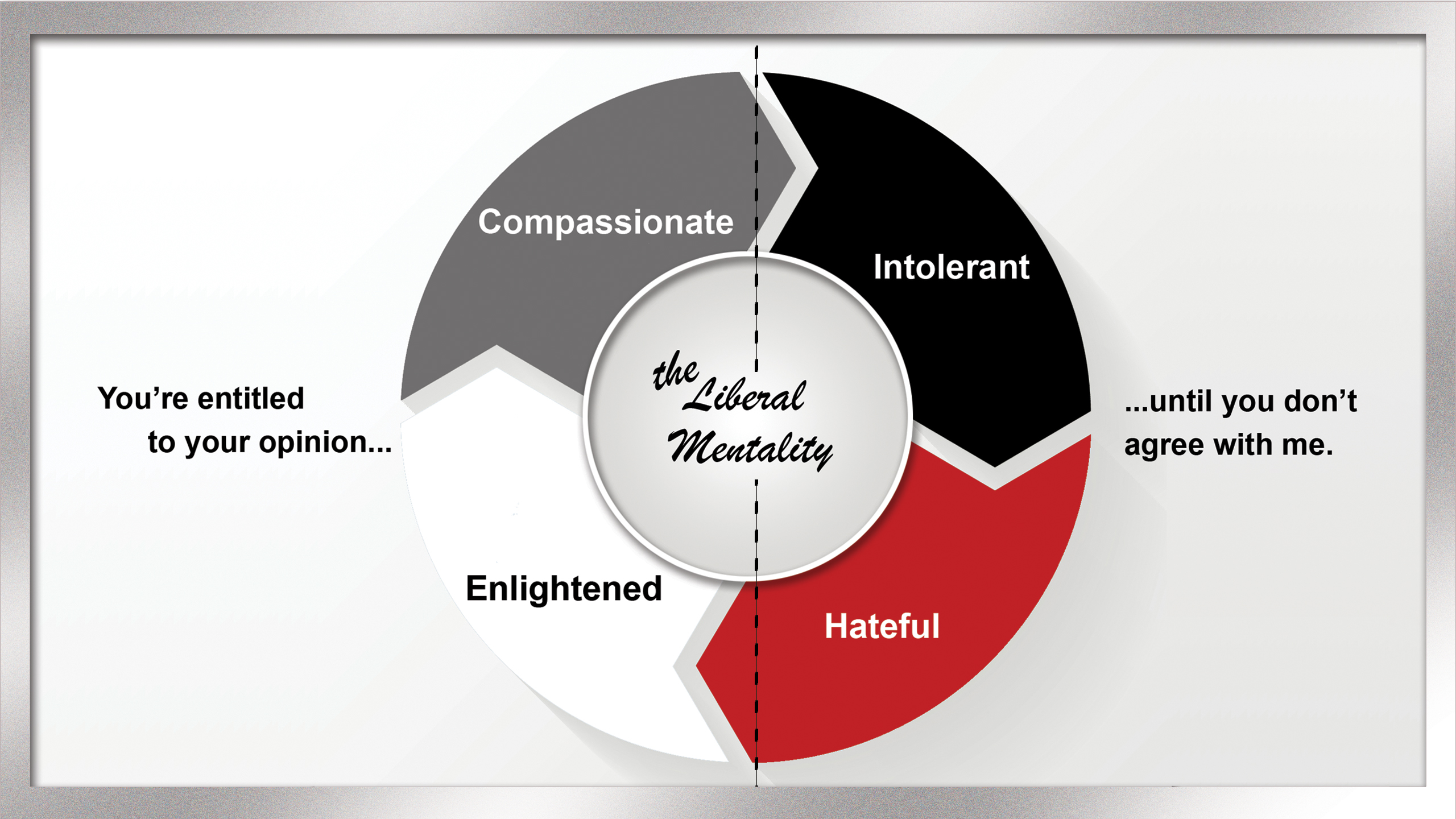
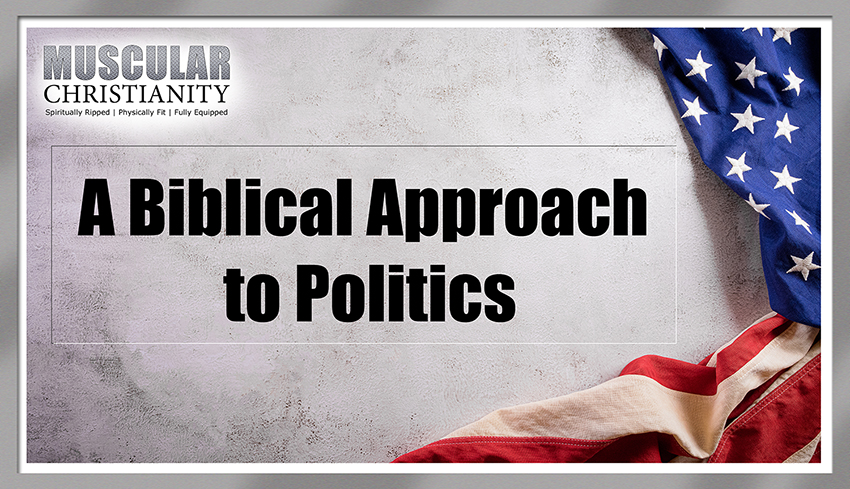




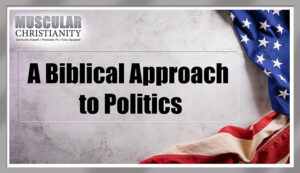
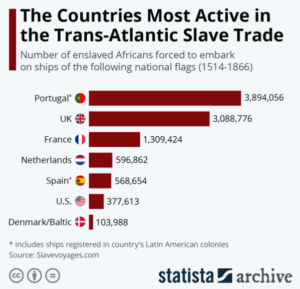




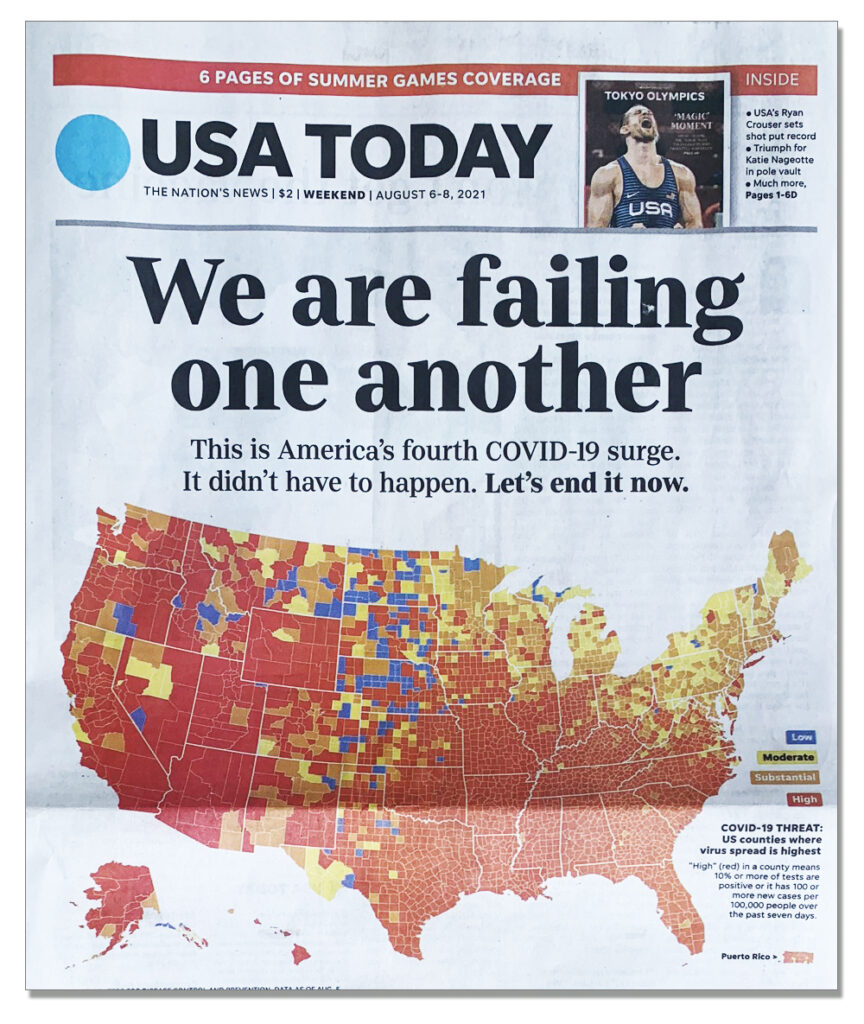

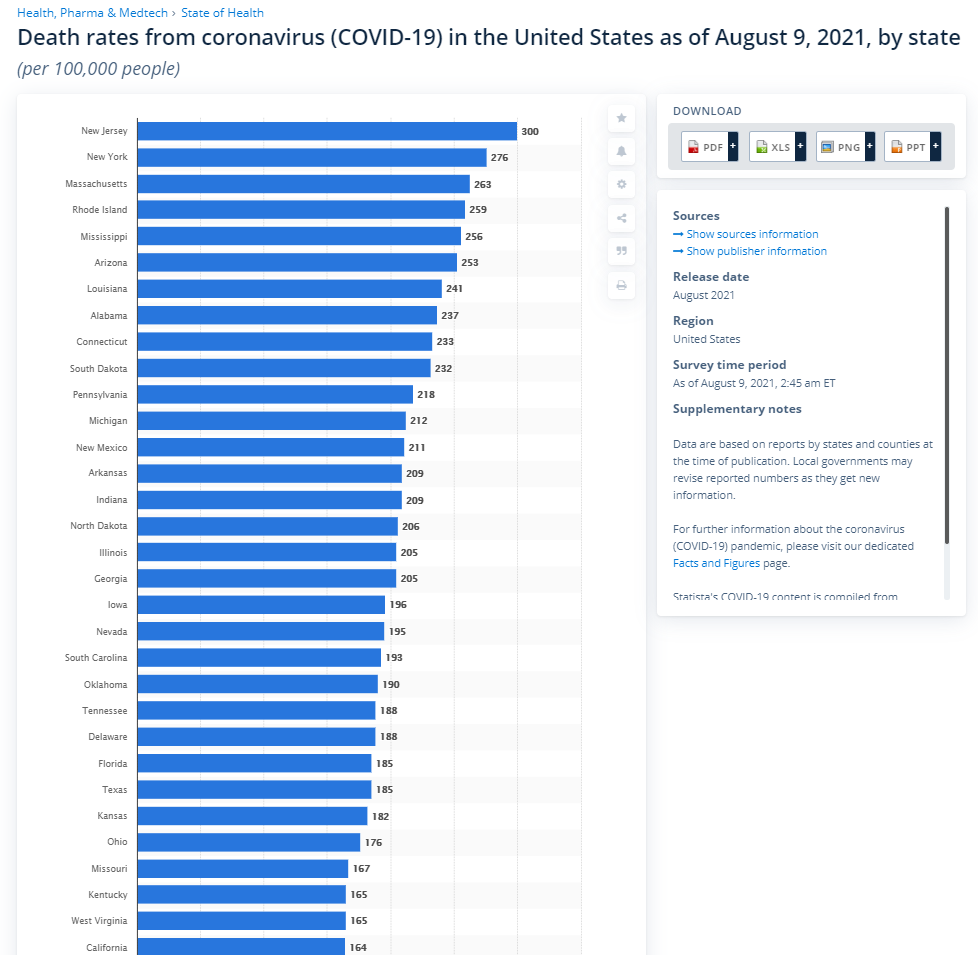
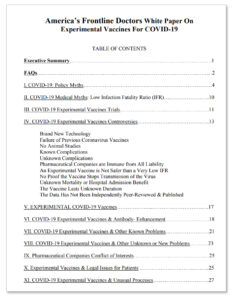


 It’s not just brilliant statesmanship or profound philosophy that makes us who we are. It is the way we appealed to the Bible for the moral substance for our cause and the template for our approach to government. While there have been several personalities since then that have used either the Bible or the flag to advance an agenda that was genuinely evil, it was their lack of morality and not a flaw in our foundation that bears the blame for their atrocities.
It’s not just brilliant statesmanship or profound philosophy that makes us who we are. It is the way we appealed to the Bible for the moral substance for our cause and the template for our approach to government. While there have been several personalities since then that have used either the Bible or the flag to advance an agenda that was genuinely evil, it was their lack of morality and not a flaw in our foundation that bears the blame for their atrocities.









You must be logged in to post a comment.